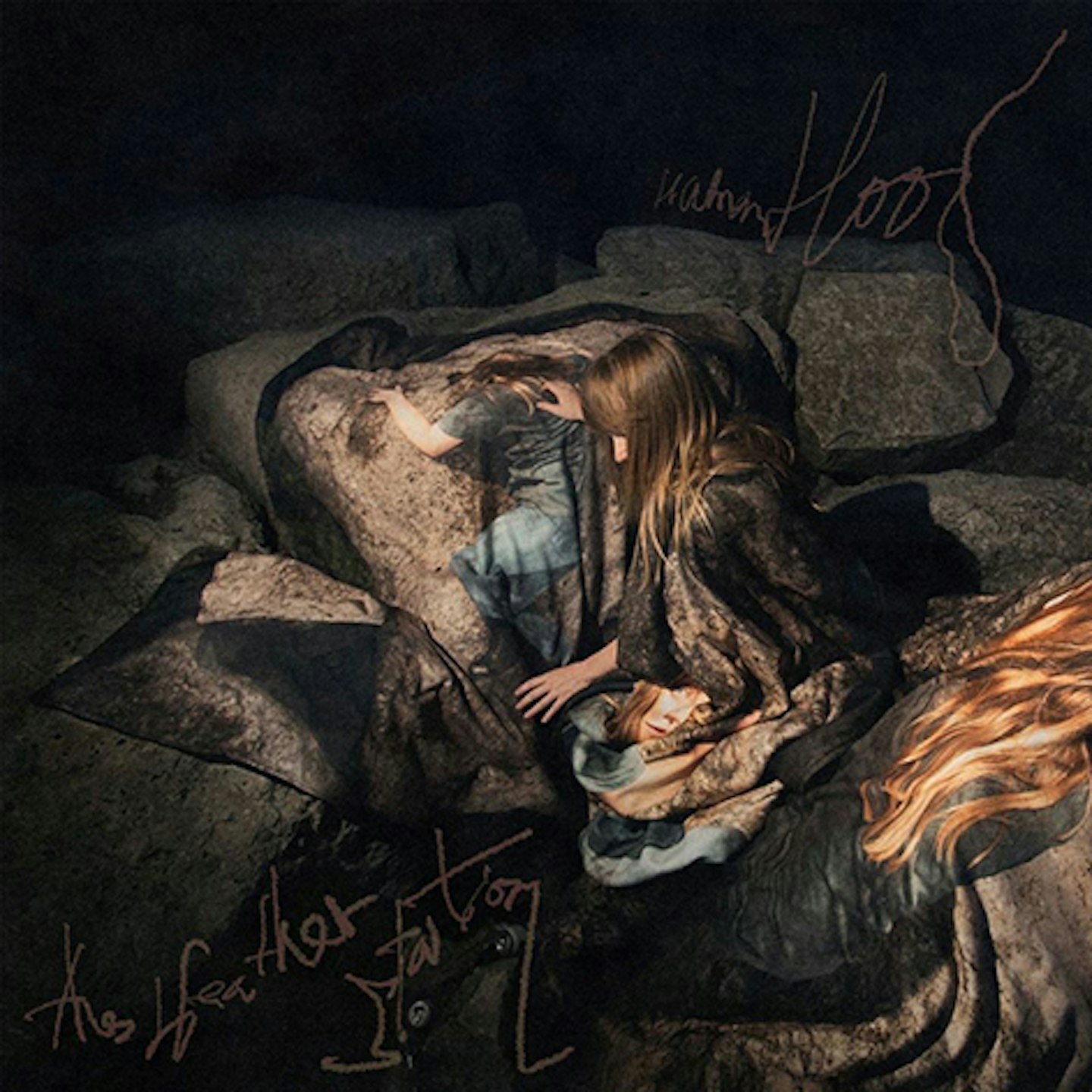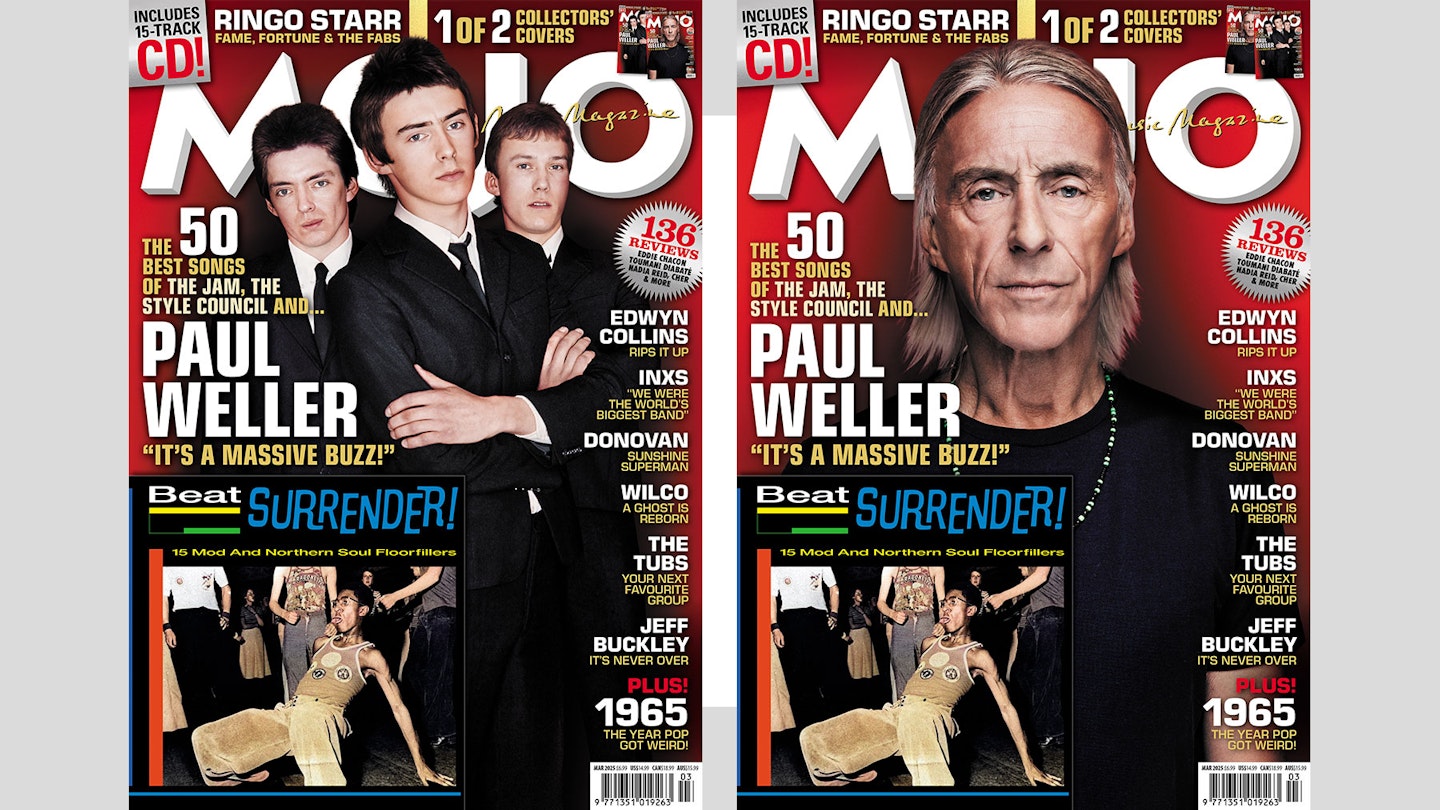The Weather Station
Humanhood
★★★★
FAT POSSUM

PUTTING TOGETHER a metaphorical patchwork quilt on Sewing, the closing song from her seventh studio album, The Weather Station’s Tamara Lindeman looks up from the tongue-in-the-corner-of-the-mouth task of stitching herself back together and breaks the fourth wall. Her voice a fragile tinkle, she sings: “I’m trying to show to you something I saw and can’t explain.”
A folk-meets-jazz-meets-1980s-Pretenders parallel to Fellini’s 8½ or Pulp’s This Is Hardcore, Humanhood is an eye-witness account of how the Canadian former child star went from debilitating despair to a new understanding of what it is to be. “It felt like a second adolescence, like puberty,” she tells MOJO of her bleakest hours. “It’s ugly. It’s rotten. It’s bad. It’s yucky. You don’t feel good. But you come through it.”
In the wake of 2021’s rapturously received Ignorance and its enigmatic half-sibling, 2022’s How Is It That I Should Look At The Stars, Lindeman was in theory in as good a place as she had ever been, having reached the kind of audience she had longed for ever since she self-released The Weather Station’s 2009 debut, The Line. However, as she went through the motions of touring and making videos, she found herself riven with self-doubt and battling mental health issues.
Ignorance owed its soft power to Lindeman’s refusal to disentangle the personal from the political, relationship murk inextricable from concerns about wealth inequality and climate catastrophe. Forged in more trying circumstances, Humanhood addresses rather more basic questions of what it takes to survive in the modern world. As she puts it on Neon Signs, her emotional livestream of an alienating walk around the streets of Toronto: “Why can’t I get off this floor? Think straight anymore?”
The basic elements of Humanhood came together in a couple of sessions in late 2023, Lindeman improvising in the studio in the company of long-term collaborators – drummer Kieran Adams, pianist Ben Boye, percussionist Philippe Melanson, reeds player Karen Ng and bassist Ben Whiteley – plus co-producer Marcus Pequin. Edited and re-sculpted (with the help of additional guests like Sam Amidon and James Elkington), the music mirrors Lindeman’s lyrical vision, not exactly embracing chaos, but accepting its place in a damaged personal ecosystem.
It opens with a stark miniature, Descent, before slamming into Neon Signs, Lindeman alienated from the world around her and “unmoored from reality” as she hits the streets feeling “nothing nothing nothing nothing naught”. Seeking something solid to hang on to, she finds a world that doesn’t get it. A Suzanne Vega approximation of a Dr. John strut, Mirror rages at an acquaintance who comes to all the wrong conclusions. “The memories and stories, the gifts that you got,” Lindeman sneers. “Ragged and ancient, smelling of rot.”
The ecstatic rush of Window provides relief from the stench of old-world decay, Lindeman momentarily quaking at the thought of a change of scenery. “What am I doing standing dizzy on my own landing, a change of clothes hastily packed and the key to some apartment cold in my hand?” she sings.
However, a big lesson of Humanhood is that there is no running away from the physical self. A funked-up approximation of Brian Eno’s Music For Airports, Body Moves finds Lindeman getting just enough distance to work out what her problem might be. “Scared, lost, under duress,” she sings, observing herself pitifully. “You’re begging someone for forgiveness, you don’t know what you had to address.”
In the context of her overheated, overstretched state, it’s sort of a breakthrough. On the rueful twinkle Ribbon, Lindeman recounts feeling compelled to “drive three highways” out of the city to the Saguenay Fjord to get to the waters and “feel if it’s cold, bring it to my mouth to taste the salt tang on my lips”. However, after making her 11-hour journey, she finds that she is not alone with the elements, plenty of others making their own little voyages to the Gulf Of St Lawrence. Lindeman’s high-pitched little revelation: “My pain is ordinary, I’m just like anybody.”
There is more water in Humanhood’s title track, this time Lake Ontario, where Lindeman goes for a dip on a hot day. Patti Smith but with more banjo, it’s a reckoning with “carrying a body” as she puts it “that’s tired from carrying a mind”. Being “one of a generation that might end the world” seems like an impossibly onerous piece of self-knowledge, but as she dives down, she feels weightless for a moment.
At this point, there is some kind of reckoning. Over a Steely Dan shuffle, Lindeman’s friend Erin Orstynova gives a slightly garbled explanation of the imminent environmental apocalypse on Irreversible Damage. The glacier-like Lonely then offers a rather more personal counterpart. A messy break-up flickers around the edges of several songs on Humanhood, and here Lindeman acknowledges an unsettling hypothesis: might all that anxiety over the state of the universe just be some kind of auto-immune response to being alone?
With Sewing, Lindeman slowly puts all of her pieces back in place over a martial drumbeat. The world is a mess, and so is she, but then again so is anyone with half a brain who occasionally reads a newspaper. The only rational response is to acknowledge all of one’s frailties, and embroider them into what she calls “this undulating thing, this blanket I seem to be making from pride and shame, beauty and guilt”.
Weyes Blood’s And In The Darkness, Hearts Aglow and Cassandra Jenkins’ An Overview On Phenomenal Nature are both patchworked together from similar material (the loneliness, the apocalypse, the water that cures everything), but Humanhood takes quiet solace in no longer needing to be a lone voice in the wilderness.
Bad stuff happens to all sorts of people all the time, it says; pain is so commonplace as to be almost meaningless. Even if she can’t quite make sense of it all, Lindeman owns what happened to her with this superbly honed musical novella, and does her best to stumble on. “I’m taking pictures of the sky again,” she sings, going a bit Yoko Ono at the end of Sewing. “I don’t know why – I guess I wanted to.” The gutter, the stars, and all that.
Humanhood is out January 17 on Fat Possum.
LISTEN/BUY: Spotify | Apple Music | Amazon | Rough Trade | HMV
Get the latest issue of MOJO for the definitive verdict on all the month's best new albums, reissues, music films and books. More info and to order your copy HERE!

